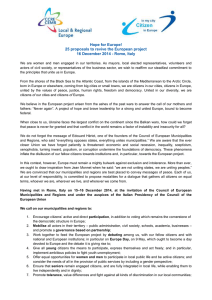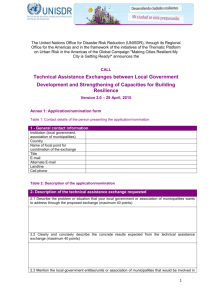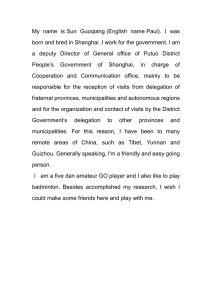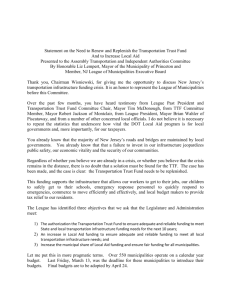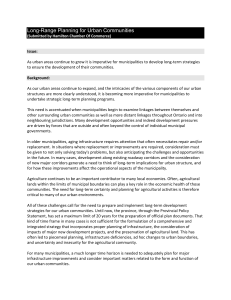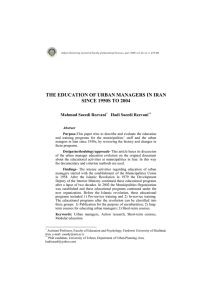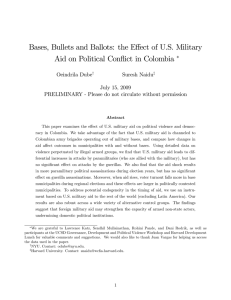Document 13699772
advertisement
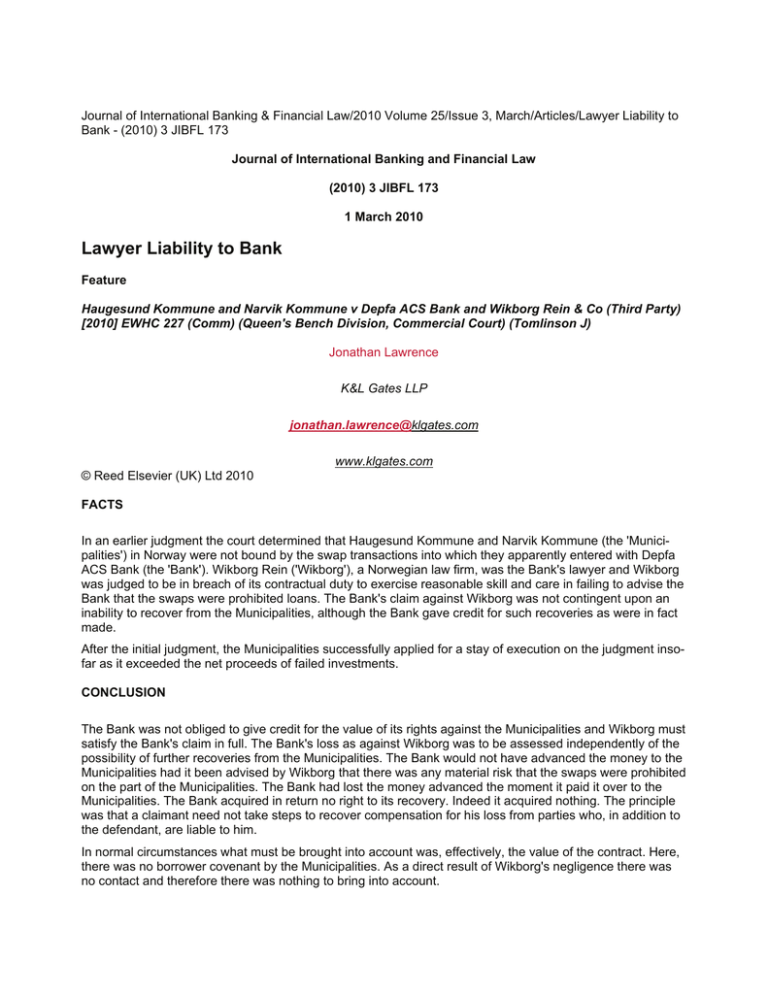
Journal of International Banking & Financial Law/2010 Volume 25/Issue 3, March/Articles/Lawyer Liability to
Bank - (2010) 3 JIBFL 173
Journal of International Banking and Financial Law
(2010) 3 JIBFL 173
1 March 2010
Lawyer Liability to Bank
Feature
Haugesund Kommune and Narvik Kommune v Depfa ACS Bank and Wikborg Rein & Co (Third Party)
[2010] EWHC 227 (Comm) (Queen's Bench Division, Commercial Court) (Tomlinson J)
Jonathan Lawrence
K&L Gates LLP
jonathan.lawrence@klgates.com
www.klgates.com
© Reed Elsevier (UK) Ltd 2010
FACTS
In an earlier judgment the court determined that Haugesund Kommune and Narvik Kommune (the 'Municipalities') in Norway were not bound by the swap transactions into which they apparently entered with Depfa
ACS Bank (the 'Bank'). Wikborg Rein ('Wikborg'), a Norwegian law firm, was the Bank's lawyer and Wikborg
was judged to be in breach of its contractual duty to exercise reasonable skill and care in failing to advise the
Bank that the swaps were prohibited loans. The Bank's claim against Wikborg was not contingent upon an
inability to recover from the Municipalities, although the Bank gave credit for such recoveries as were in fact
made.
After the initial judgment, the Municipalities successfully applied for a stay of execution on the judgment insofar as it exceeded the net proceeds of failed investments.
CONCLUSION
The Bank was not obliged to give credit for the value of its rights against the Municipalities and Wikborg must
satisfy the Bank's claim in full. The Bank's loss as against Wikborg was to be assessed independently of the
possibility of further recoveries from the Municipalities. The Bank would not have advanced the money to the
Municipalities had it been advised by Wikborg that there was any material risk that the swaps were prohibited
on the part of the Municipalities. The Bank had lost the money advanced the moment it paid it over to the
Municipalities. The Bank acquired in return no right to its recovery. Indeed it acquired nothing. The principle
was that a claimant need not take steps to recover compensation for his loss from parties who, in addition to
the defendant, are liable to him.
In normal circumstances what must be brought into account was, effectively, the value of the contract. Here,
there was no borrower covenant by the Municipalities. As a direct result of Wikborg's negligence there was
no contact and therefore there was nothing to bring into account.
The adverse consequences flowing from entering into the transaction, attributable to the deficiency in Wikborg's advice, were that there was in fact no transaction in the sense of a contract and that, still more conclusively, the value of the rights acquired against the Municipalities under the transaction was nil.

